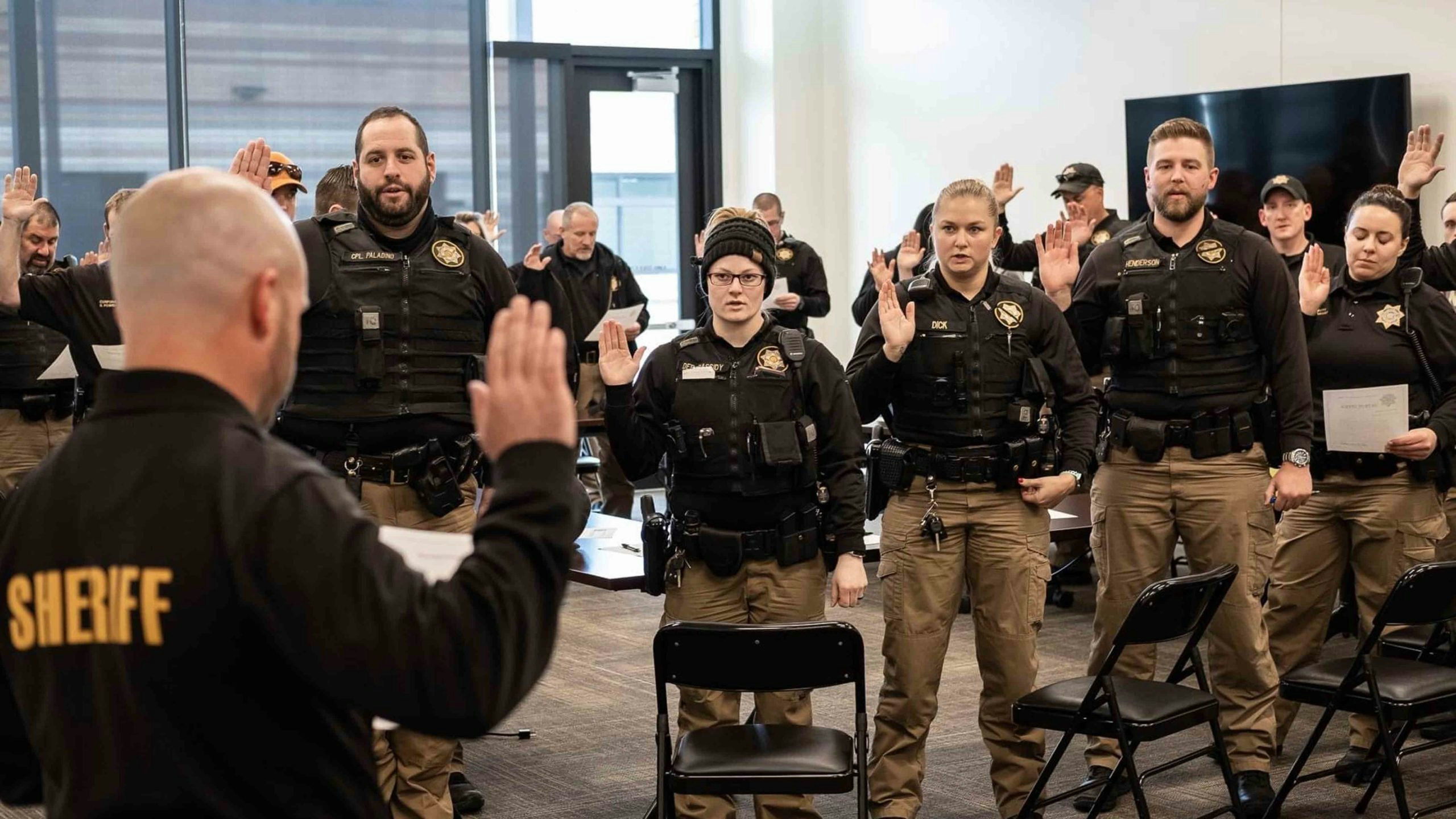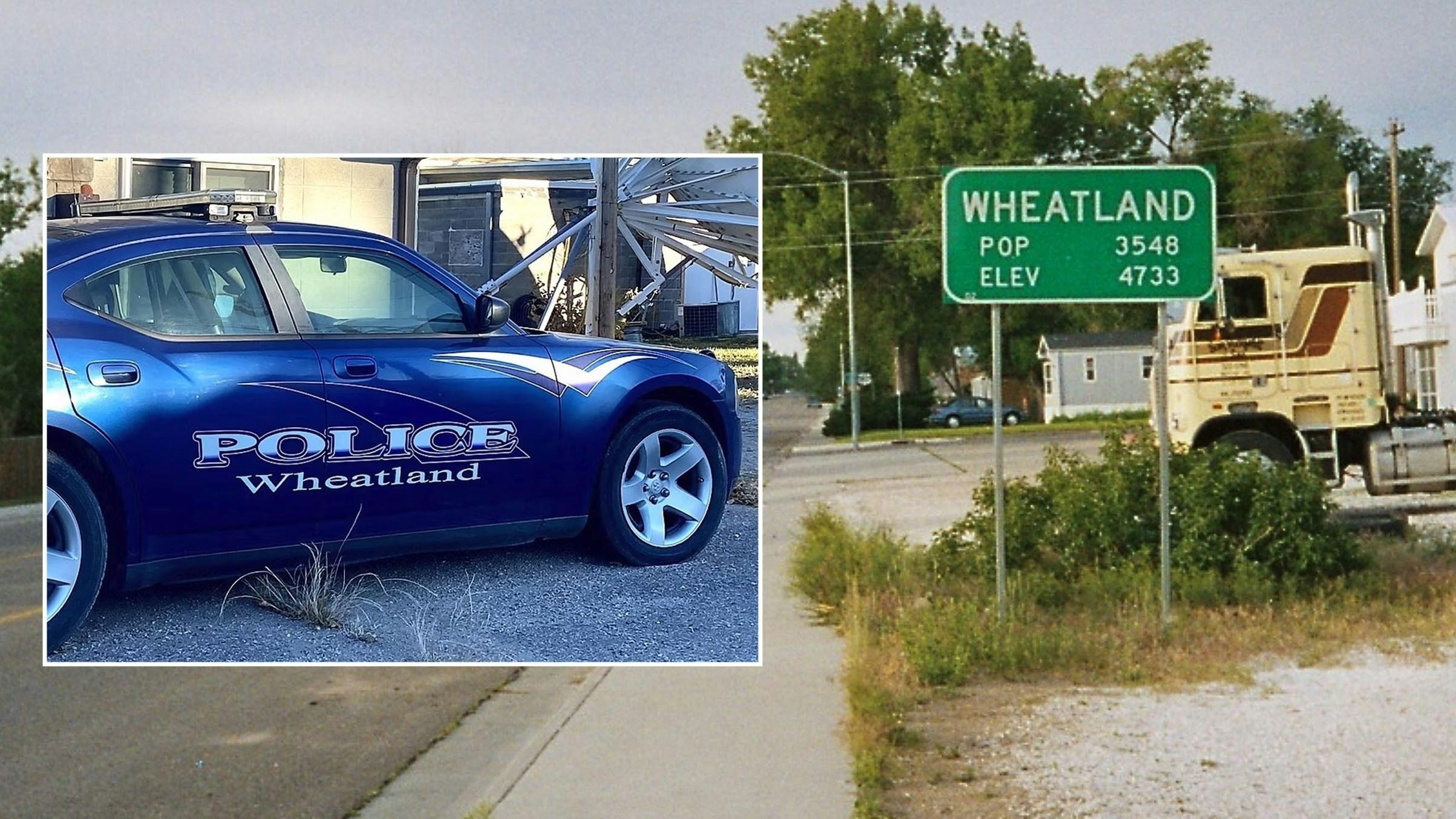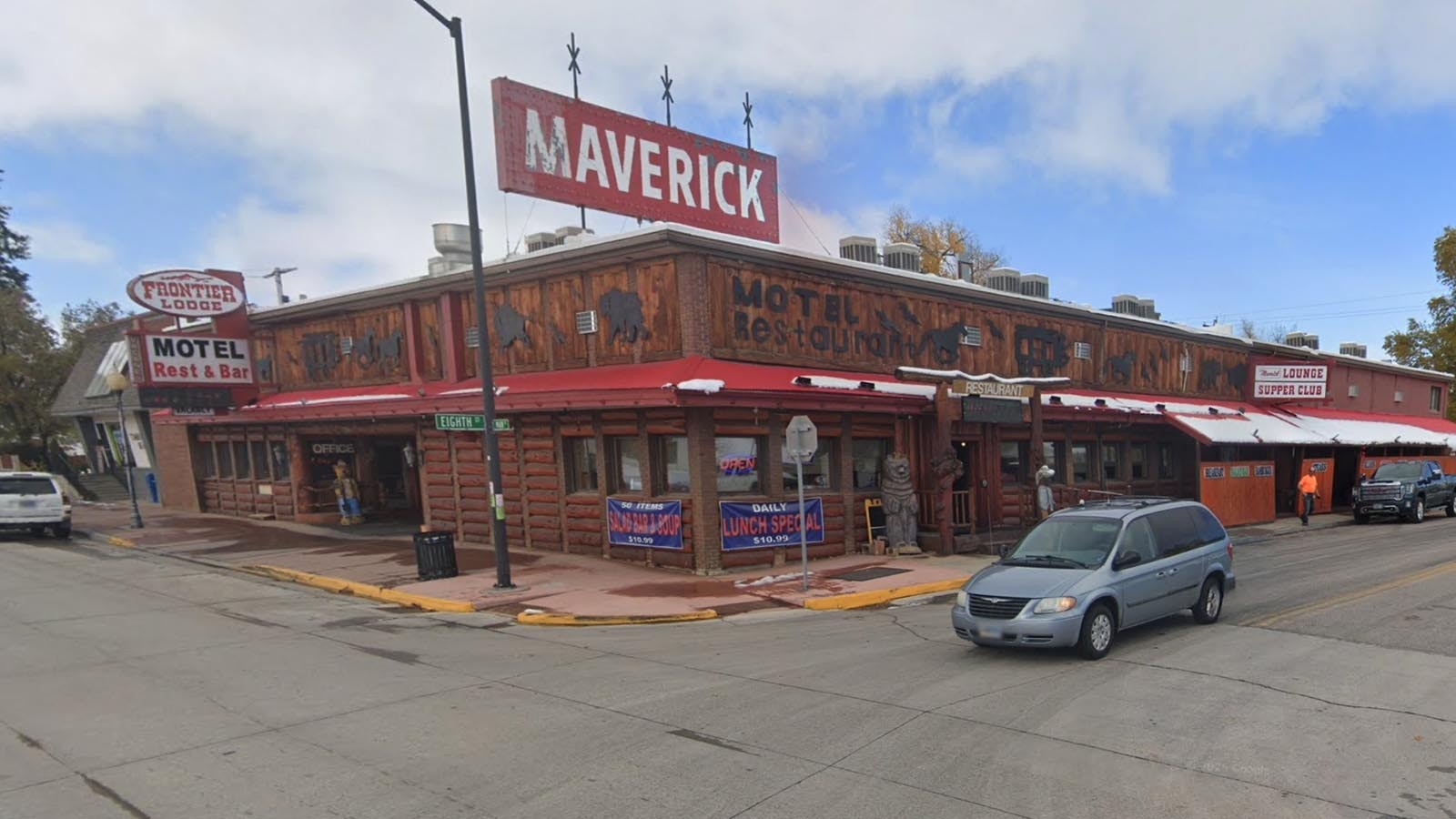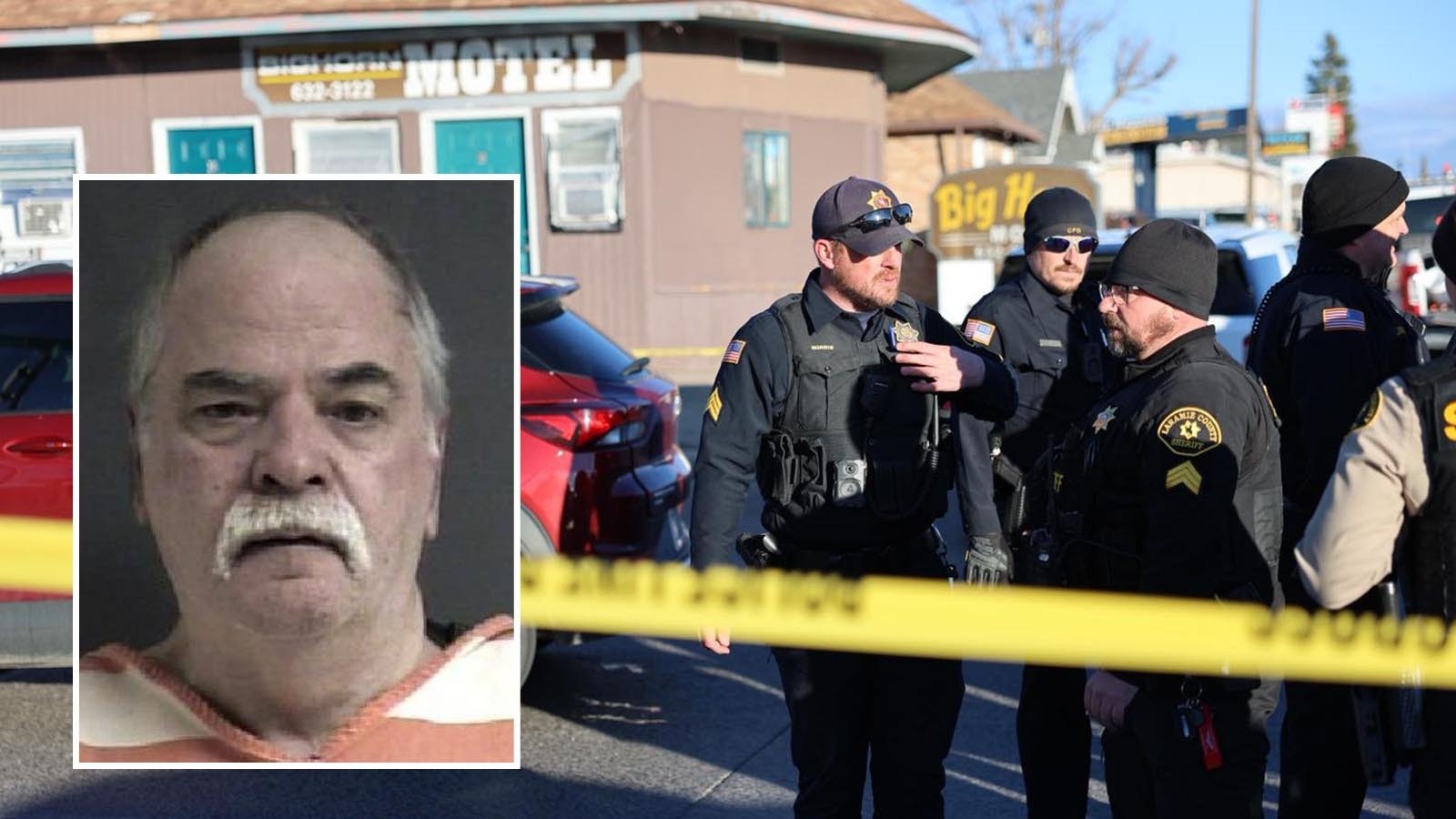When Minneapolis Police Officer Derek Chauvin knelt on George Floyd’s neck, none of his fellow officers stopped him in the 9 minutes and 29 seconds it took Floyd to stop breathing.
That’s a scenario that the Sweetwater County Sheriff’s Office is determined to prevent by training officers to prevent misconduct and mistakes by their colleagues.
This week, Sheriff John Grossnickle announced that his office is the first law enforcement agency in Wyoming accepted into the Active Bystandership for Law Enforcement (ABLE) Project, a national training and support initiative based at Georgetown University. The program is committed to building a culture of peer intervention to prevent harm to both the people officers interact with and officers themselves.
“Being in law enforcement for over 26 years,” Grossnickle told Cowboy State Daily, “there was a time and place that other officers would step in, but there’s a factor of being uncomfortable if you were to observe something that you didn’t think was right. This allows our agency to hold one another accountable and takes it a step further and ensures our community that they can hold us accountable at the same time.”
The ABLE project is evidence-based and field-tested, according to Deputy Jason Mower, and designed to provide practical “active bystandership” strategies and tactics to law enforcement officers to help them prevent misconduct, reduce mistakes, and promote health and wellness among officers themselves.
“As a law enforcement agency … in this day and age, the reality is whether it’s an accident, whether it’s honest mistake, or whether it’s something more nefarious, if one officer does something, inevitably, they’re going to drag the rest of the officers down with them,” Mower said. “And the agency and everybody looks bad.”
National Program
The Sheriff said he first heard about the program at a leadership class a year ago.
“There were a lot of other administrators there from larger agencies, upwards of 500 (officers), I think,” he said. “Some of those had implemented it and had just seen the change in their community and a change in their agencies. And speaking with them, I decided – much like my platform was when I ran the first time – it’s just something we needed to implement as an extension of the people here at Sweetwater County.”
The Sweetwater County Sheriff’s office is one of more than 215 law enforcement agencies and statewide and regional training academies from across North America implementing the ABLE training program.
Local Leadership
Sheriff’s Office patrol services and detention center officers Lt. Rich Fischer and Lt. Rich Kaumo are now certified to teach the program and over the coming months, all sheriff’s office deputies will receive eight hours of bystandership education designed not only to prevent harm, but also to change the culture of policing in Sweetwater County.
“It really breaks down misconduct, mistakes, and then, just as the sheriff alluded to, the health and wellness of an officer,” said Kaumo. “The tactics that we were taught break down the aspect of rank, how to intervene and conduct interventions with people that are ranked either higher than you, lower than you or are equal to you.”
“There are indicators that suggest that an employee is going to have a problem,” said Fischer. “We encourage everybody to intervene when they see something. There are policies in place to support intervention, it doesn’t matter who you intervene with, and (insure) that there is no retaliation.”
Community Relations
As much as the ABLE program is an effort to support other law enforcement officers, Fischer pointed out that by encouraging peer intervention, the agency’s reputation is also enhanced within the community.
“If you don’t intervene, a member of the community could be hurt, a member of the agency could be hurt,” he said. “They could lose their job. They could go to prison. The public opinion of the agency, as a career as a whole, is destroyed – and that takes years to rebuild that trust between us and the citizens that we serve.”
“Even though they may be criminals, or may be having issues in their life, they’re still human beings,” Grossnickle said, “and we need to treat them accordingly, like we would anybody else.”
Everyday Incidents
Lt. Kaumo noted that this training isn’t designed just to prevent high-profile excessive use of force incidents such as the Minneapolis case. He said it’s also about the lesser interactions that could cause issues for officers.
“There are everyday incidents that law enforcement officers across the country face where, proactively in a professional way, you pull an officer aside and say, ‘Hey, man take a breather, or, you know, I got this, take a break for a second,’” Kaumo said.
Fischer said that looking back on his 14 years with the Sweetwater County Sheriff’s Office, he can recall incidents where this type of training would have been beneficial.
“I’m like, ‘Oh my gosh, that would have been a perfect time for me to have done this technique,’” he said. “I knew there were times in the past where intervention could have been warranted for – fortunately for nothing that was misconduct – but you could see steps where … maybe they got in trouble later on, or you notice they were having some issues at home.”
Mental Health
Grossnickle said because being a law enforcement officer is such a high-stress job, much of the ABLE training supports officers’ mental health.
“If we have officers with clear heads, these types of incidents will go down to zero,” he said. “And this is another piece of that puzzle to keep minds clear – to know that people are going to push our buttons, but others around us will step in and help us when that occurs.
“(This training) is going to allow our employees – not just the sworn officers, but our civilian officers – to recognize that when we see the emotional change or somebody’s demeanor change, that we’re able to step in and prevent any of this from happening,” he continued. “Whether it’s suicide, or they go on the next call that might push them over the edge to have a an encounter that’s not positive.”
Continued Training
Kaumo added that the ABLE training isn’t just a “one-and-done” program.
“The basic training is an eight-hour course that will be pushed out to every officer throughout our agency,” he said. “And then every year there’s a two-hour refresher. So it’s something that continuously they get refreshed on, updated on through the entire time that they’re employed here at the Sheriff’s office.”
Grossnickle noted that the department’s goal is to have all officers trained in the program by June of this year.
“When they successfully complete the ABLE training, they’re gonna get a uniform pin to show that, ‘Hey, I’ve been trained in this. I am an active bystander,’” Fischer said. “All of that is a daily reminder that I’m looking out for my co-workers, myself, everybody that I work with in law enforcement.”
Statewide Effort
Grossnickle told Cowboy State Daily that he hopes that Sweetwater County will not be the last Wyoming county to join the program.
“Moving forward, I am going to challenge all the law enforcement administrators in the state of Wyoming to implement this in their agencies also,” he said, “so we can have Wyoming as a front runner with this program.”
Preventing Tragedy
Grossnickle said that in situations like the high-profile George Floyd case, if Chauvin’s fellow officers had taken part in a training program like ABLE, the entire incident would have gone much differently.
“It wouldn’t have happened if one of those officers would have stepped in and said, ‘Okay, hold on, let me take care of this. You know, he’s already in handcuffs. We don’t need to do this,’” Grossnickle said. “In this day and age, in light of current events, we must embrace the notion that, while our job may be to enforce the law, our mission is to serve others. We are people first, cops second.”
To follow along with the Sweetwater County Sheriff’s office progress with this program, visit its Facebook page at www.facebook.com/swcountysheriff.
For more information on the ABLE Project, visit the program’s website at www.law.georgetown.edu/ABLE.





